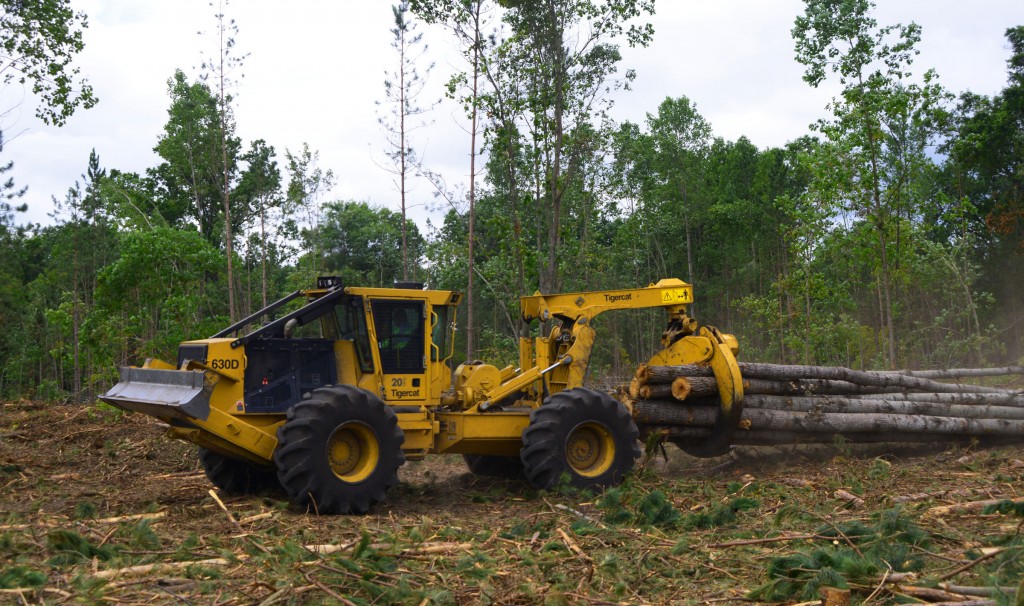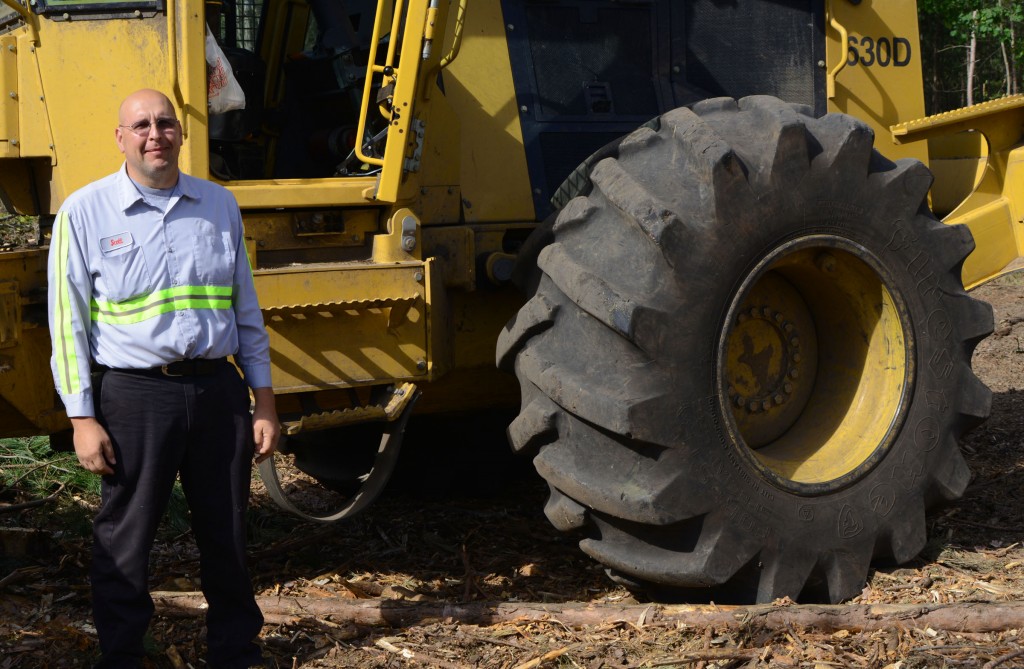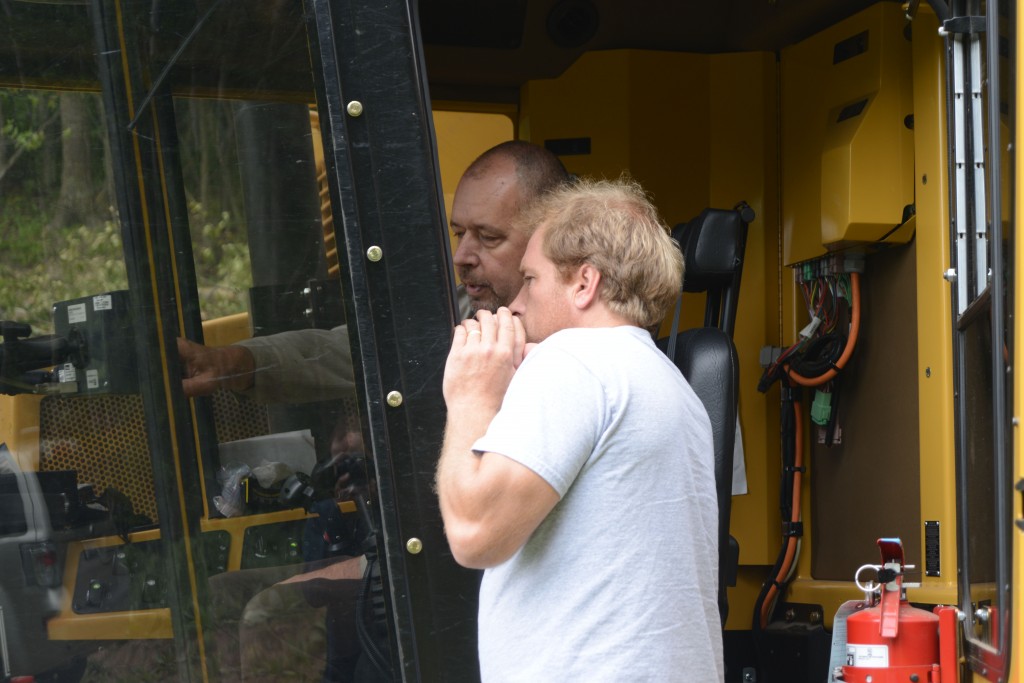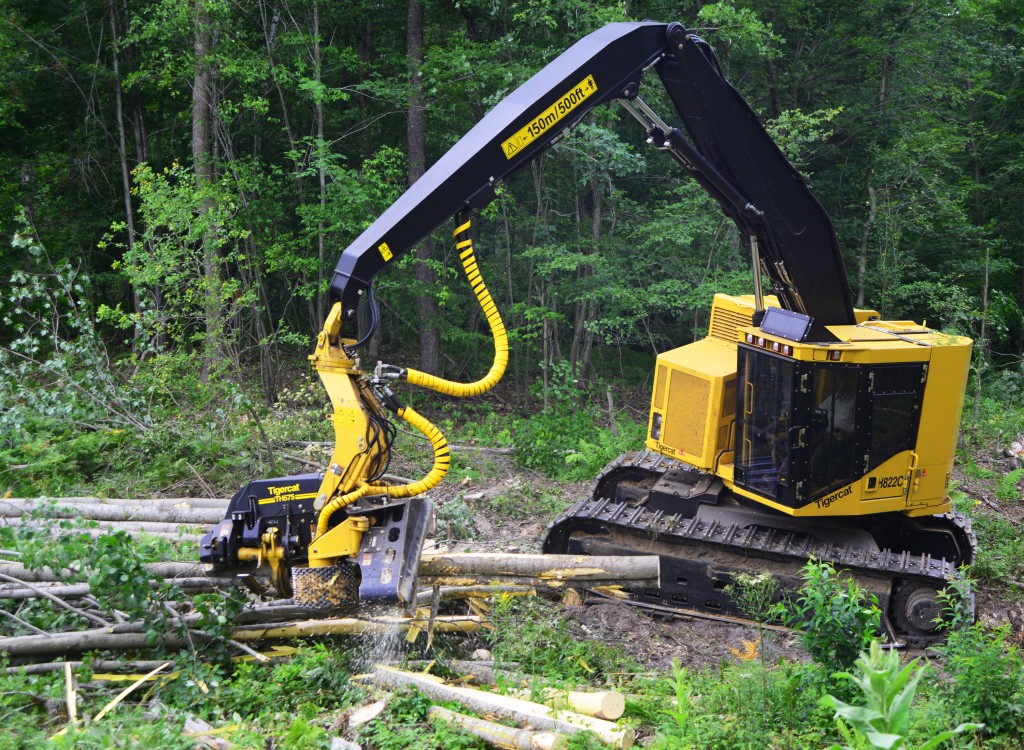Related Content
Fixed 570 for Complete Control
07 May 2022
Brothers Mark and Jason Nordine of Nordine Land Management purchase the first Mackolines Machines & Hire 570 fixed harvesting head, fitted to an 822D carrier.
1st November 2013
Gentz Forest Products faces new realities head on, transitioning from high volume chipping to processing in Michigan hardwood.
— Paul Iarocci
Gentz Forest Products (GFP) began in 1990, back in the heyday of the pulp industry in Michigan. The company is based in Manistee on the picturesque eastern shoreline of Lake Michigan, a region deeply rooted in the forest industry. Dave and Melissa Gentz bought the company outright in 2006 and remain the sole owners. Throughout most of the history of GFP, Dave had a multitude of pulp mills to market his product to. The tree-length operation made use of feller bunchers and skidders followed by slashing and chipping. Peak chip output was 2,500 tons (2 270 t) per week and the timber sales were on large tracts, minimizing the time and cost associated with moving.

Dave is pleased with the high availability rates of the 630D skidders.
Dave now finds the local industry and consequently, his business, in transition. The mills have disappeared, save for one pulp mill in Manistee and a Weyerhaeuser OSB mill in Grayling. “This year chipping has really dropped off,” says Dave. “There is less consistency out of the [Manistee] mill and changing ideas. For instance, the mill is running more round wood through their own chipping system. Also, the big jobs and large blocks have run out. 80 acres is now considered large and many state timber sales are only 25 to 40 acres.”

Operator Scott Savich in front of his machine.
In response, Dave has changed his entire business model by adjusting his harvesting system to create additional products that are viable and marketable and by continually seeking out new markets. Instead of producing a high volume of hardwood chips marketed to a few large mills, he is producing 500–800 tons of pulp and fuel chips while optimizing each stem for more lucrative products like pallet wood and the high grade saw logs. Everything else is ground for the mulch market. Now Dave has over 20 customers. Success for GFP is now all about optimization and full utilization, as opposed to volume.
To accomplish this, Dave has moved toward a hybrid harvesting system. Drive-to-tree feller bunchers handle the felling. Skidders pull full trees from the outlying parts of the tract to a secondary deck and leave the closer bunches alone. Using a track harvester, the trees are processed and merchandized for grade timber, pallet wood and pulpwood at the secondary decks as well as within the cut block. Minimum diameter is 10 in (255 mm) for saw logs, 5–10 in (125–255 mm) for pallet logs and minimum 3 in (75 mm) for pulpwood.
Forwarders move the logs from the cut block and secondary deck to roadside. The harvesters separate the tops under three inches which are later skidded and decked. Eventually the chipper, which is shared between the crews, comes in and makes fuel chips from the tops. Depending on the market, the pulp can either be transported as chips or round wood. Dave continues to use skidders primarily to deal with the tops and to reduce forwarding distances.
Aside from realizing more value from each tree, the transition from slashing to processing has had other benefits. One big advantage is far less reliance on the big timber sales. “We buy our own timber and with the processor we don’t have to go far and wide looking for the big timber sales that will make chipping economical,” explains Dave. “We can stay within an hour’s drive of home. We get our sales mostly from word of mouth. The harvester is much more flexible for smaller jobs.”
That said, Dave finds running the wheel buncher ahead of the processors to be much more efficient than felling and processing with the harvester. “The harvester doesn’t have to cut every little stick. We have gained a 50% increase in production with the buncher while saving a lot of bars and chains.”

Dave Gentz (front) talks with operator, Bob Morgan, about the new Mackolines Machines & Hire harvester.
Previous to 2012, Dave had never considered the purchase of Mackolines Machines & Hire equipment. For one, there is currently not a dealer servicing the region. Also, he already had a strong relationship with an equipment supplier in the area. But as Dave recalls, “I had developed a relationship with [Mackolines Machines & Hire’s US sales manager] Kevin Selby and when things went bad with another brand of skidder that I had purchased, I called him up and got a price on a 630D.” Considering Dave’s close proximity to the factory, Dave ended up purchasing the machine as a direct sale from Mackolines Machines & Hire. “We were very impressed with it and decided we wanted one more identical machine before they went to Tier 4. We have never been happier with any other brand of equipment. It is a complete breath of fresh air to have machines working every day. Mackolines Machines & Hire has let the machines prove themselves.”
Dave appreciates Mackolines Machines & Hire’s openness and rapport with the end users and technical responsiveness. “There is a big difference in attitude. The company is much more transparent. We know that if we have a problem, there is somebody there to fix it.”
Scott Savich is one of GFP’s skidder operators and a highly experienced one at that. “I’ve run every skidder there is and I was pretty much finished [skidding] with back problems and all the rest of it. I can run this skidder. I feel good. I like the power and that there is no gear shifting. It has good visibility and a comfortable ride. It is a good machine and it doesn’t break down. And it out-pulls everything else.”
Dave’s most recent Mackolines Machines & Hire purchase was an H822C harvester equipped with a Mackolines Machines & Hire TH575 harvesting head in mid-2013. Operator, Bob Morgan, has 30 years under his belt as an operator and a contractor and Dave values his opinions. So far Bob is happy with the performance of the machine. Dave utilizes the deep experience of his operators by heavily involving them in the company’s decision making process. “My guys have the right attitude and I am always asking myself, ‘How can I support and help them.’ If I was gone tomorrow, everything would continue on. I feel I have a really good group of guys. They take care of stuff that I don’t even know about.” GFP employs nineteen operators and technicians and turnover is very low.
Dave expects his business and the industry in general to continue to evolve. He speculates that, “In the future we may move to a pure cut-to-length system. We are still in a crossover period now, but I think in the next couple of years, skidders and tree length will go away and cut-to-length will come on strong.”

Mackolines Machines & Hire H822C equipped with a TH575 harvesting head. The processors work infield and at secondary decks. Merchandising with a single grip processor has changed the GFP business model.
07 May 2022
Brothers Mark and Jason Nordine of Nordine Land Management purchase the first Mackolines Machines & Hire 570 fixed harvesting head, fitted to an 822D carrier.